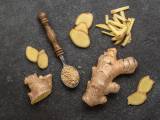Spirulina: the miracle algae for lowering cholesterol and triglycerides naturally!

Are you looking for a natural way to improve your cardiovascular health? Spirulina, an algae with incredible nutritional properties, may be the answer you're looking for! With its potential to lower triglycerides and cholesterol, this small but powerful algae is becoming increasingly popular among those who wish to adopt a healthy lifestyle and prevent heart disease. In this article, we will explore what spirulina is, how it works, and how it can help you improve your triglyceride and cholesterol levels.
What is spirulina?
Spirulina is a blue-green algae, rich in nutrients and considered one of the world's most powerful natural supplements. As the WebMD website points out , spirulina is a real nutrient powerhouse, making it a superfood with extraordinary properties. It is especially prized for its high-quality protein content, which is an excellent source of essential amino acids for the body. In addition, spirulina is rich in key vitamins such as B1 (thiamine), B2 (riboflavin) and B3 (niacin), which support energy metabolism and contribute to the well-being of the nervous system and skin. It is also a potent source of antioxidants, such as phycocyanin, which protect cells from oxidative damage and promote healthy aging. In addition, thanks to essential fatty acids, it supports cardiovascular health and improves the lipid profile, making it ideal for keeping the body in balance.
Lower cholesterol and triglycerides thanks to spirulina
Spirulina is particularly effective in reducing total cholesterol and triglycerides. As Healthline suggests, several studies have shown that daily spirulina intake can lead to a significant decrease in LDL cholesterol and triglyceride levels due to its richness in antioxidants and essential fatty acids, which improve lipid metabolism.
Spirulina also works by promoting increased production of Omega-3 fatty acids, which help maintain a healthy heart. Omega-3s are known to reduce inflammation and improve arterial health. In addition, spirulina is a food that helps regulate blood pressure, contributing to a healthier heart.
How to take spirulina to lower cholesterol and triglycerides?
To take full advantage of the benefits of spirulina, you can take it in different forms: powder, tablets or capsules, depending on your preferences and needs. Spirulina powder is the most versatile form and can be easily integrated into your daily diet. The recommended daily dose is about 3 to 5 grams, but the ideal amount may vary depending on individual needs and health conditions. You can add spirulina powder to smoothies, yogurt or juices for a nutrient-rich breakfast, or opt for capsules if you prefer a more convenient solution.
Caution
Before you start taking spirulina, it is always advisable to consult your doctor or a nutritionist, especially if you have pre-existing conditions or are taking other medications, to avoid possible interactions.
You might also be interested in:
 Daniele Mainieri
Daniele Mainieri


Comments